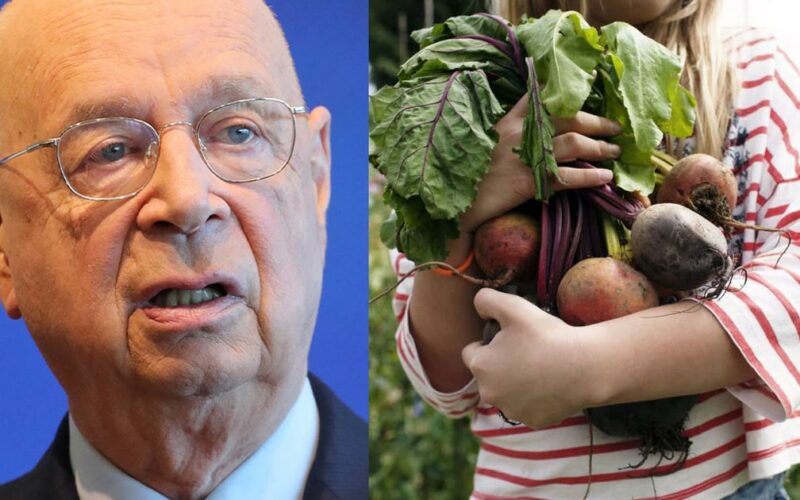WEF Pushes Ban on Home-Grown Gardens to ‘Fight Climate Change’
March 1, 2024
The WEF and other globalist climate zealots are now demanding that governments intervene and ban individuals from growing their own food in order to “save the planet” from “global warming.”
Via slaynews.com:

The World Economic Forum (WEF) is calling on governments to ban the general public from growing their own food at home by arguing that they are causing “climate change.”
According to so-called “experts” behind a recent WEF study, researchers apparently discovered that the “carbon footprint” of home-grown food is “destroying the planet.”
As a result, the WEF and other globalist climate zealots are now demanding that governments intervene and ban individuals from growing their own food in order to “save the planet” from “global warming.”
The research indicated that resorting to garden-to-table produce causes a far greater carbon footprint than conventional agricultural practices, such as rural farms.
This research, conducted by WEF-funded scientists at the University of Michigan, was published in the journal Nature Cities.
The study looked at different types of urban farms to see how much carbon dioxide (CO2) was produced when growing food.
On average, a serving of food made from traditional farms creates 0.07 kilogram (kg) of CO2, according to the study.
However, the WEF-funded researchers claim that the impact on the environment is almost five times higher at 0.34kg per portion for individual city gardens.
The paper’s first author Jake Hawes said:
“The most significant contributor to carbon emissions on the urban agriculture sites we studied was the infrastructure used to grow the food, from raised beds to garden sheds to pathways, these constructions had a lot of carbon invested in their construction.”
The study recruited 73 urban agriculture sites around the world.
Those farms included some in Europe, the United States, and the United Kingdom.
The researchers say they conducted a comprehensive life cycle assessment on the site’s infrastructure, irrigation, and supplies.
Hawes and his teammates grouped urban agriculture sites into three categories: individual or family gardens, including allotments; collective gardens, such as community gardens; and larger, commercial-orientated urban farms.
The researchers also found other factors that they claimed are “hazardous” when it comes to impacting the alleged “climate crisis.”

Poorly managed compost and other synthetic inputs contribute to “global warming,” they warned.
They further advised that fruit was 8.6 times more “eco-friendly” when grown conventionally compared to in a city.
Vegetables, meanwhile, were 5.8 times better for the environment when left to the professionals, they claim.
Moreover, two-thirds of the “carbon footprint” of allotments is created by the garden itself, as per their data.
Nevertheless, they insist that people should be limited when it comes to keeping plants inside their homes, as well as growing food in their gardens.
Urban gardeners used to have no qualms about greening their indoor spaces.

For one, this reduces city living anxieties and emotional stress.
Also, being able to take care of plants inside their offices and homes could be part of interior design and a slight improvement in air quality.
However, climate alarmists are not going to give city dwellers peace of mind.
According to the WEF researchers, greening indoor spaces can also come at an environmental cost.
Are you ready?
- Blue Monster Prep







